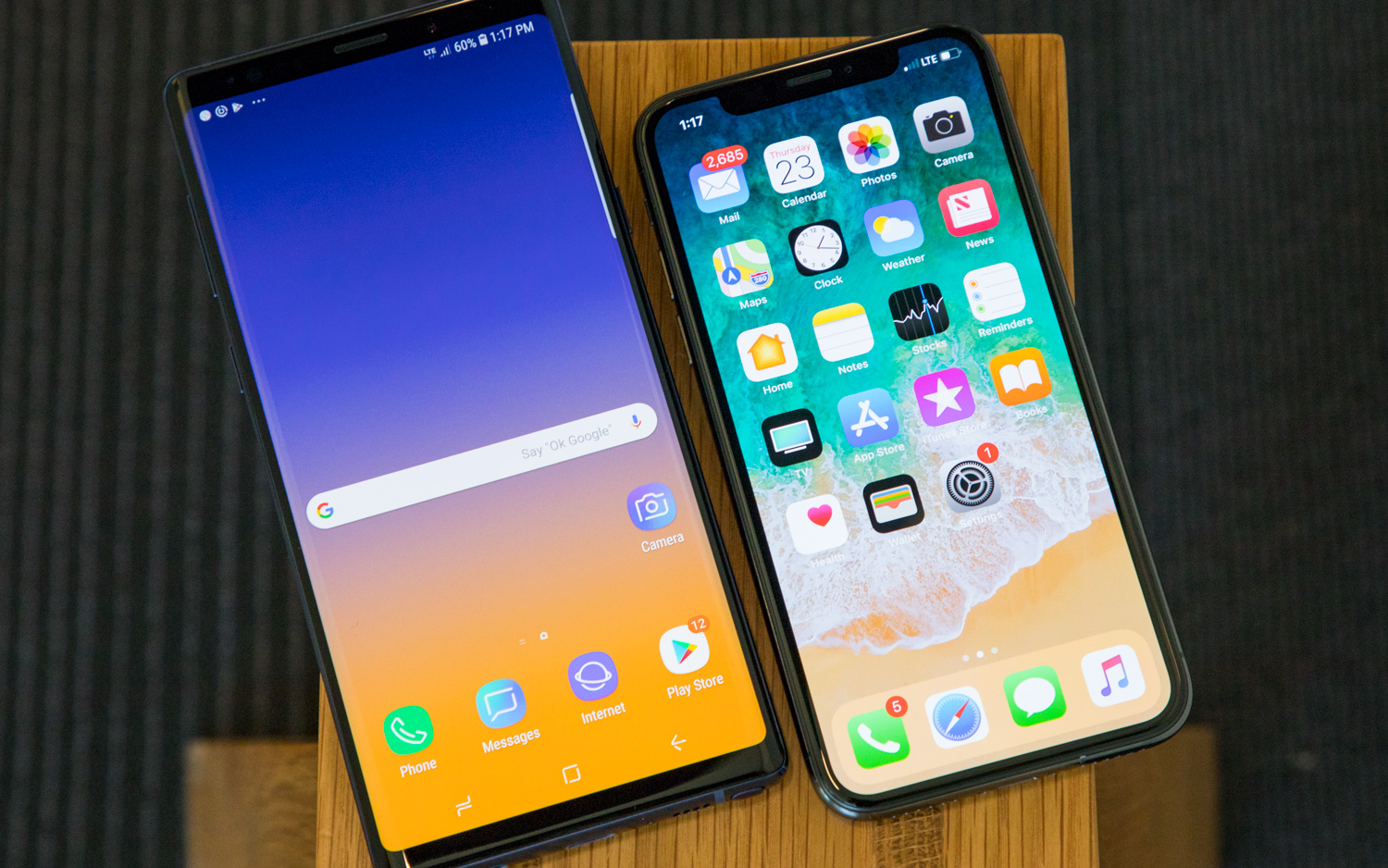Galaxy Note 9 vs iPhone X Speed Test: Why Samsung Wins
The iPhone X may be fastest phone in a pinch, but a recent test suggests the Note 9 is the best over sustained usage. Here's why.
Which phone is faster: Samsung's brand-new Galaxy Note 9 or the A11 Bionic-powered iPhone X?

It turns out the answer all depends on how you frame the question, as we're reminded yet again by an illuminating video from YouTuber PhoneBuff.
In the test PhoneBuff conducted, 16 apps were loaded one by one on both phones with no breaks, and then opened again in reverse order. As a result, each half of the test highlighted a different aspect of overall performance. The first part measured out-and-out speed of launching apps, while the second tested the phones' ability to keep those apps in its memory to quickly open again.
Not surprisingly, the iPhone X smoked the Note 9 in the first half of the test, beating Samsung's flagship to the halfway point by 6 seconds. We expected as much, given the A11 Bionic's superior multi-core performance in benchmarks. However, when it came time to run the test backwards, the Note 9 came from behind to beat the iPhone X by a hard-to-believe 30 seconds, thanks in no small part to its 6GB of RAM compared to the Apple's 3GB.
The apps used for the test spanned everything from graphics-intensive mobile games to productivity apps, streaming services, news aggregators and photo editors. And while the Note 9 managed to keep almost all 16 of its recently-opened apps in memory, the iPhone hit a wall after after the seventh app, which forced the phone to relaunch them from scratch from that point on — a process that consumed a ton of time.
MORE: Galaxy Note 9 vs. iPhone X: Which Flagship Rules?
The stellar performance of Apple's mobile devices is often chalked up to the company's ethos of developing its hardware and software in tandem. As a result, iOS and the apps built for it are theoretically better optimized for iPhones and iPads than Android is for the myriad of phones that run Qualcomm's Snapdragon chipsets.
Get instant access to breaking news, the hottest reviews, great deals and helpful tips.
That's all well and good, but a test like this reminds us there's no replacement for RAM. And as fast as that A11 silicon is, it doesn't help the iPhone X pick up from where it left off just minutes earlier.
Fortunately for Apple, a new batch of iPhones are on the way, and with them will undoubtedly come a new generation of processors. If the A12 widens the gap even further beyond the Snapdragon 845 in terms of raw speed, and if Apple ups the RAM capacity in its next handsets, the pendulum could decidedly swing in Cupertino's favor.
With announcements likely to come in the middle of September, we won't have to wait long to find out.
Adam Ismail is a staff writer at Jalopnik and previously worked on Tom's Guide covering smartphones, car tech and gaming. His love for all things mobile began with the original Motorola Droid; since then he’s owned a variety of Android and iOS-powered handsets, refusing to stay loyal to one platform. His work has also appeared on Digital Trends and GTPlanet. When he’s not fiddling with the latest devices, he’s at an indie pop show, recording a podcast or playing Sega Dreamcast.
-
giulio.montemurro Perhaps you should have waited until iOS 12 is officially released and the optimized apps come out for it in September to perform this comparison?Reply
